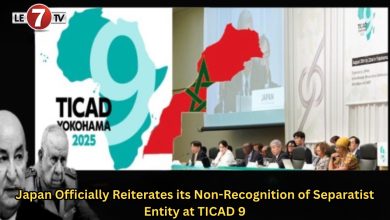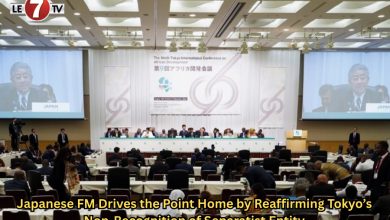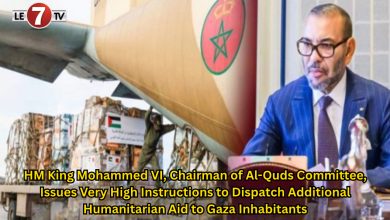Seville: Malian Prime Minister Accuses Algerian Regime of Destabilizing the Sahel and Backing Terrorism
At the International Conference on Financing for Development held in Seville, Malian Prime Minister Abdoulaye Maïga delivered a hard-hitting speech that landed like a diplomatic thunderclap. Carefully worded yet unmistakably pointed, his remarks accused foreign state powers of playing a direct role in fueling the region’s spiral into terrorism. The message, though not explicit, clearly targeted Algeria’s military regime.
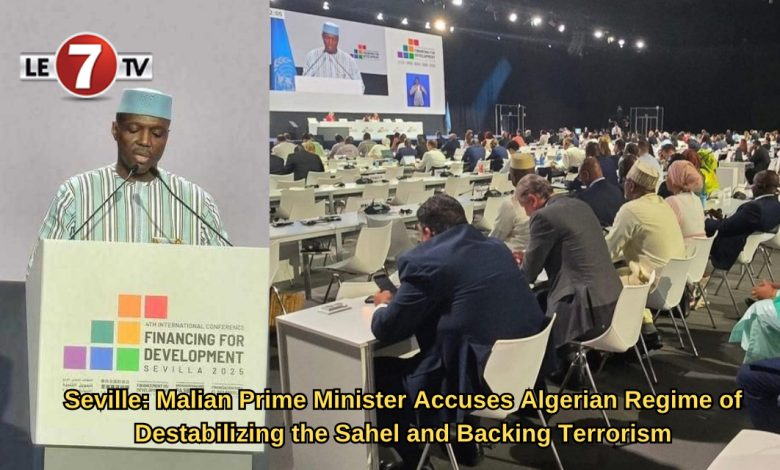
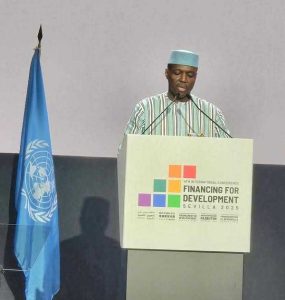
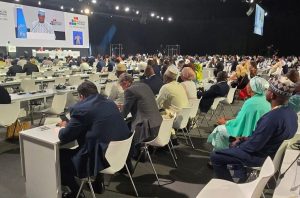
“A terrorism imposed from outside”
Speaking in a solemn tone, Maïga stated, “For more than a decade, the Sahel has been facing a terrorism that was imposed on us, marked by the undeniable involvement of foreign state sponsors.”
Though he refrained from naming Algeria, the implications were impossible to miss. The regime in Algiers has long faced accusations of maintaining a strategically ambiguous relationship with terrorist groups operating in northern Mali, southern Libya, and across the Saharan borderlands.
Maïga emphasized the resolve of the Sahel alliance: “Under the leadership of our heads of state, the Defense and Security Forces of our three nations [Mali, Burkina Faso, and Niger, now united as the AES Confederation] are courageously and relentlessly fighting these criminal, obscurantist forces.” He framed the battle as part of a broader effort to build “a pan-African regional power” rooted in sovereignty, dignity, and freedom from neocolonial control.
Sovereignty over alliances and resources
His remarks reflect the AES bloc’s push for full control over their territories, governance, and geopolitical partnerships. The Malian leader stressed that national resources are now fully mobilized to combat this existential threat. “A large portion of our resources is allocated to fighting terrorism in all its forms. This is essential to ensuring the very survival of our states,” he said.
Terrorism, a roadblock to development
Maïga highlighted the devastating toll terrorism is taking on progress in the region, stating, “Terrorist groups destroy schools, burn health centers, and abuse women and children.”
Such violence, he noted, makes it impossible to achieve meaningful economic, social, or human development, especially in a region already weakened by structural underdevelopment and decades of externally supported misrule.
Algeria in the Sahel’s crosshairs
Although the speech did not name Algeria directly, the target was clear. The address adds fuel to escalating diplomatic tensions between the AES and Algiers, which is frequently accused of harboring radical groups, showing strategic leniency toward the Polisario, and playing both arsonist and firefighter in the region.
Increasingly criticized across Africa for its contradictory foreign policy, Algeria is losing credibility as a mediator. By implicitly labeling Algeria a “state sponsor” of terror, Mali casts a stark light on what it sees as hidden culprits behind the chaos in the Sahel.
A call for global wake-up
Maïga ended his speech with a strong appeal to the international community. “It is time to support the efforts of the Sahel countries, which are fighting for survival, peace, and the dignity of African peoples while the world looks away,” he said.
His bold words in Seville mark a turning point in African diplomacy. This was not just a speech—it was a reckoning. One that calls out those who fuel terror behind the scenes while publicly claiming to promote peace.
Editorial team/le7tv


